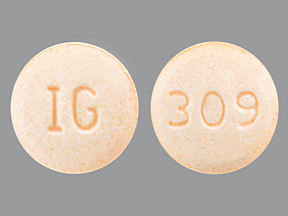HYDRALAZINE - ORAL
PHONETIC PRONUNCIATION: (hye-DRAL-a-zeen)
COMMON BRAND NAME(S): Apresoline
GENERIC NAME(S): hydralazine HCl
Uses
USES: Hydralazine is used with or without other medications to treat high blood pressure. Lowering high blood pressure helps prevent strokes, heart attacks, and kidney problems. Hydralazine is called a vasodilator. It works by relaxing blood vessels so blood can flow through the body more easily.
How to use HYDRALAZINE - ORAL
HOW TO USE: Take this medication by mouth with or without food, usually 2 to 4 times daily or as directed by your doctor. The dosage is based on your medical condition and response to treatment. Your doctor may start you at a low dose and gradually increase your dose. Follow your doctor's instructions carefully. Use this medication regularly to get the most benefit from it. To help you remember, take it at the same times each day. It is important to continue taking this medication even if you feel well. Most people with high blood pressure do not feel sick. It may take up to several weeks before you get the full benefit of this drug. Do not stop taking this medication without consulting your doctor. Some conditions may become worse when the drug is suddenly stopped. Your dose may need to be gradually decreased. Tell your doctor if your condition worsens (for example, your routine blood pressure readings increase).
Side Effects
Precautions
Interactions
Overdose
Images
Reviews
Faq for HYDRALAZINE - ORAL
Hydralazine-Oral is used to treat high blood pressure (hypertension). It may also be prescribed for certain heart conditions.
Hydralazine-Oral works by relaxing and widening blood vessels, which helps lower blood pressure and improve blood flow to the heart.
The dosage of Hydralazine-Oral can vary depending on the individual and their condition. It is typically taken 2 to 4 times a day, as directed by a healthcare professional.
Common side effects of Hydralazine-Oral may include headaches, dizziness, fast heartbeat, nausea, vomiting, loss of appetite, and diarrhea. If these side effects persist or worsen, it is important to contact your doctor.
It is important to inform your doctor about all the medications you are currently taking before starting Hydralazine-Oral. Certain medications may interact with Hydralazine-Oral and cause adverse effects. Your doctor will be able to advise you on the safety of combining medications.
It is best to avoid alcohol while taking Hydralazine-Oral. Alcohol may increase the side effects of the medication and affect its effectiveness.
The effects of Hydralazine-Oral may be noticeable within 30 minutes to 1 hour after taking the medication.
It is important to consult with your doctor before using Hydralazine-Oral during pregnancy. The benefits and risks must be evaluated on an individual basis.
Do not stop taking Hydralazine-Oral without consulting your doctor. It is usually a long-term medication, and sudden discontinuation may cause your condition to worsen.
Hydralazine-Oral may cause dizziness and lightheadedness. Avoid activities that require alertness until you know how the medication affects you. It is also important to regularly monitor your blood pressure and report any significant changes to your healthcare provider.
Disclaimer
IMPORTANT: HOW TO USE THIS INFORMATION: This is a summary and does NOT have all possible information about this product. This information does not assure that this product is safe, effective, or appropriate for you. This information is not individual medical advice and does not substitute for the advice of your health care professional. Always ask your health care professional for complete information about this product and your specific health needs.


No Reviews Yet